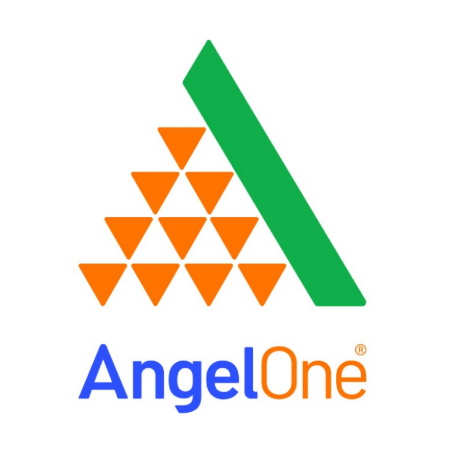Back in early 2021, when I was just starting my investment journey, I was overwhelmed by the sheer number of choices. I remember downloading Groww and Angel One the same day, excited but also completely lost. One had a sleek look, almost too simple, and the other looked like a trader’s paradise—complete with complex charts and a flood of data. Fast-forward to 2025, and thousands of new investors are facing the same crossroads I did: Angel One or Groww? Which brokerage app is truly the better fit?
At Indiainvesthub, we work with hundreds of new investors every month. One of the most common questions we hear is, “I’m confused between Angel One and Groww — which is best for me?” That’s why we’ve put together this no-fluff, stats-backed review of Angel One vs Groww Brokerage App in 2025. Our goal is simple: cut the noise, ignore the myths, and give you clarity based on real features and services.
Table of Contents
User Experience: Simplicity vs Power
When it comes to user experience, Groww wins the heart of beginners. Its interface is minimalist, clean, and intuitive. It’s built for people who want to invest with a few taps — without being bombarded with too many options or data.
In contrast, Angel One caters to more seasoned users. Its dashboard offers more control, with features like customizable watchlists, deep portfolio insights, and live market feeds. For active traders or experienced investors, Angel One’s interface offers power at your fingertips, albeit with a slightly steeper learning curve.
Verdict: If you’re new to investing, Groww’s ease-of-use will make your journey smoother. But if you’re planning to trade frequently or want more control, Angel One’s interface gives you that edge.
Features | Angel One | Groww |
|---|---|---|
Preview |  |  |
Established Year | 1996 | 2016 |
Brokerage App Link |
Features & Tools: Depth vs Simplicity
Angel One pulls ahead when it comes to tools and features. It offers:
- Smart charts with technical indicators
- Option chains and derivatives tools
- Intraday scanners
- Research reports from certified analysts
These features make Angel One more suitable for users who want to do in-depth research or trade actively in derivatives.
Groww, on the other hand, keeps things simple. While it allows you to invest in mutual funds, stocks, and IPOs, it doesn’t offer the same depth of technical tools. You won’t find advanced charting tools or derivatives analytics here — just enough for basic long-term investing.
Verdict: For passive investors, Groww does the job. But if tools and data matter to you, Angel One is the clear winner.
Account Charges: Free vs Almost Free
When comparing costs, Groww has a strong advantage. In 2025, Groww still charges zero Annual Maintenance Charges (AMC) for demat accounts. This is great for cost-conscious investors who want to avoid hidden charges.
Angel One, while free in the first year, charges an AMC of ₹240/year from the second year onwards. While this isn’t a dealbreaker for most, it’s still a cost you need to consider.
Both platforms charge ₹20 per order or 0.1% (whichever is lower) for intraday trading, so there’s no major difference there.
Verdict: Groww wins for those who want to avoid AMCs entirely.
Product Offerings: Core vs Comprehensive
In terms of offerings, both Groww and Angel One allow you to invest in:
- Stocks
- Mutual funds
- IPOs
- Futures & Options (F&O)
However, Angel One goes a step further by also supporting commodities and currencies. This is critical for traders who want exposure to diversified markets.
Groww has kept its platform simple and does not currently offer commodity or currency trading.
Verdict: Angel One has a broader product suite, making it more suitable for diversified investment strategies.
Customer Support: Digital-Only vs Multichannel Help
One of the biggest pain points for investors is support — and here’s where the two differ significantly.
Angel One offers multi-channel support, including phone, chat, email, and even physical branch access in major cities. This matters a lot if you’re someone who prefers speaking to a human rather than writing emails.
Groww, meanwhile, relies mostly on app-based support and email communication. While they’ve improved response times, it still lacks the personal touch and can feel slow when dealing with urgent queries.
Verdict: Angel One wins hands-down for customer service, especially for those who value real human interaction.
Real Market Presence: Stats That Speak
As of April 2025, Groww has over 13 million active clients and holds nearly 25%+ market share, showing rapid growth among young investors and beginners
Angel One, while more established, has around 7.6 million active clients, with a declining share as newer platforms like Groww gain momentum.
This shift shows the growing demand for simpler, mobile-first platforms — but also signals that Angel One’s core audience remains loyal due to its advanced features.
How Indiainvesthub Can Help
At Indiainvesthub, we specialize in guiding confused investors to the right platform based on their needs — not hype. We use data, behavioral insights, and your personal investment goals to suggest the best-fit app for your journey.
We don’t promote one app over another. Instead, we walk you through scenarios, demo features, and help you understand how to align the right tools with your investing habits. If you’re still unsure whether Groww or Angel One fits your goals, we’re just a message away.
Final Thoughts: Which is Better?
There’s no one-size-fits-all answer, but here’s the honest breakdown:
- Choose Groww if you’re a beginner, prefer a simple, no-maintenance platform, and just want to invest in mutual funds or equities without the frills.
- Choose Angel One if you’re a serious trader, want access to commodities, currencies, advanced research, and value strong customer support.
Both apps are SEBI-registered, safe, and reliable — but your investing style should drive your choice, not online myths.
So, when it comes to Angel One vs Groww Brokerage App, the question isn’t just which is better — the real question is, which one is better for you?





